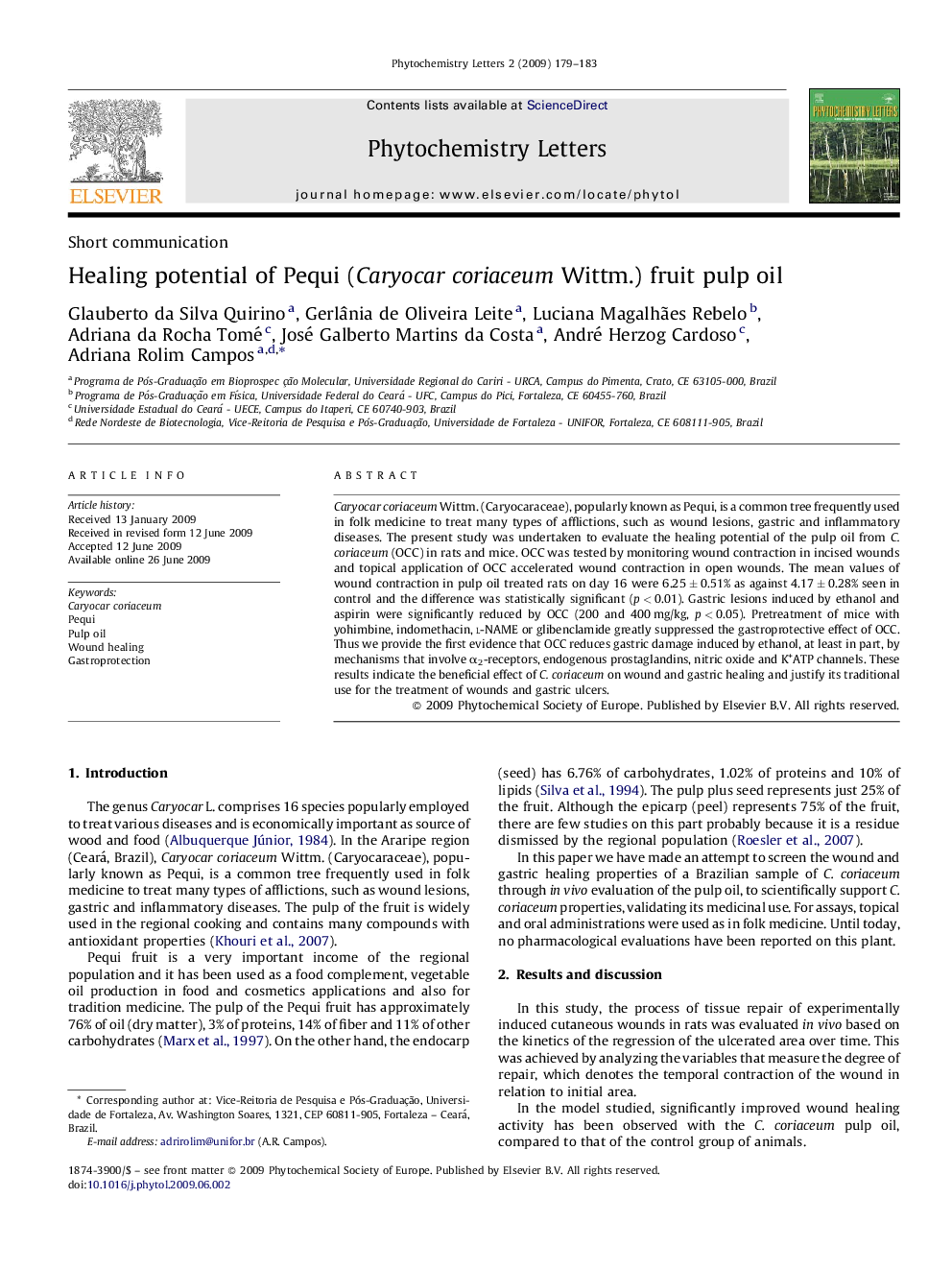| Article ID | Journal | Published Year | Pages | File Type |
|---|---|---|---|---|
| 5177175 | Phytochemistry Letters | 2009 | 5 Pages |
Caryocar coriaceum Wittm. (Caryocaraceae), popularly known as Pequi, is a common tree frequently used in folk medicine to treat many types of afflictions, such as wound lesions, gastric and inflammatory diseases. The present study was undertaken to evaluate the healing potential of the pulp oil from C. coriaceum (OCC) in rats and mice. OCC was tested by monitoring wound contraction in incised wounds and topical application of OCC accelerated wound contraction in open wounds. The mean values of wound contraction in pulp oil treated rats on day 16 were 6.25 ± 0.51% as against 4.17 ± 0.28% seen in control and the difference was statistically significant (p < 0.01). Gastric lesions induced by ethanol and aspirin were significantly reduced by OCC (200 and 400 mg/kg, p < 0.05). Pretreatment of mice with yohimbine, indomethacin, l-NAME or glibenclamide greatly suppressed the gastroprotective effect of OCC. Thus we provide the first evidence that OCC reduces gastric damage induced by ethanol, at least in part, by mechanisms that involve α2-receptors, endogenous prostaglandins, nitric oxide and K+ATP channels. These results indicate the beneficial effect of C. coriaceum on wound and gastric healing and justify its traditional use for the treatment of wounds and gastric ulcers.
Graphical abstractCaryocar coriaceum Wittm. (Caryocaraceae), popularly known as Pequi, is a common tree frequently used in folk medicine to treat many types of afflictions, such as wound lesions, gastric and inflammatory diseases. Here we provide the first evidence of wound and gastric healing by C. coriaceum and justify its traditional use for the treatment of wounds and gastric ulcers.Download full-size image
